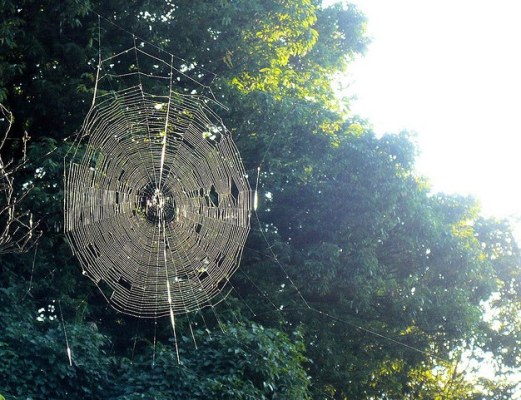Spiderman might soon lose his dominance in harnessing spider silk superpowers. Scientists from the University of Wyoming, the University of Notre Dame and Zhejiang University in China have managed to genetically modify silkworms to spin stronger silk using spider genes. The new material could be used for everything from bulletproof vests to replacing tough plastics.
Researchers have long been fascinated with spider silk, a natural material that is stronger than steel. Harvesting the stuff can be tricky, however, since spiders are poor candidates for farming. Not only are they territorial, eating each other when confined to a tight space, but they are hard to handle and produce a very small amount of silk.
Silkworms, on the other hand, have helped clothe humans for millennia without too much trouble. Crossing their genes with those of a spider could mean stronger materials that require less energy to produce. This experiment has been tried before, but Professor Don Jarvis’ team’s success lies in the high quantity and strength of silk produced by their squirmy subjects.
This is not the first time Wyoming’s researchers have experimented with spider genes: Transgenic goats, whose milk contains spider silk proteins, are already breeding on campus.
Currently, the modified silkworms contain only one kind of spider-silk-producing gene and the team hopes to have success with more genes in the future. If it works, spider silk farms might become a new source of materials for greener textiles, plastics and medical implants.
